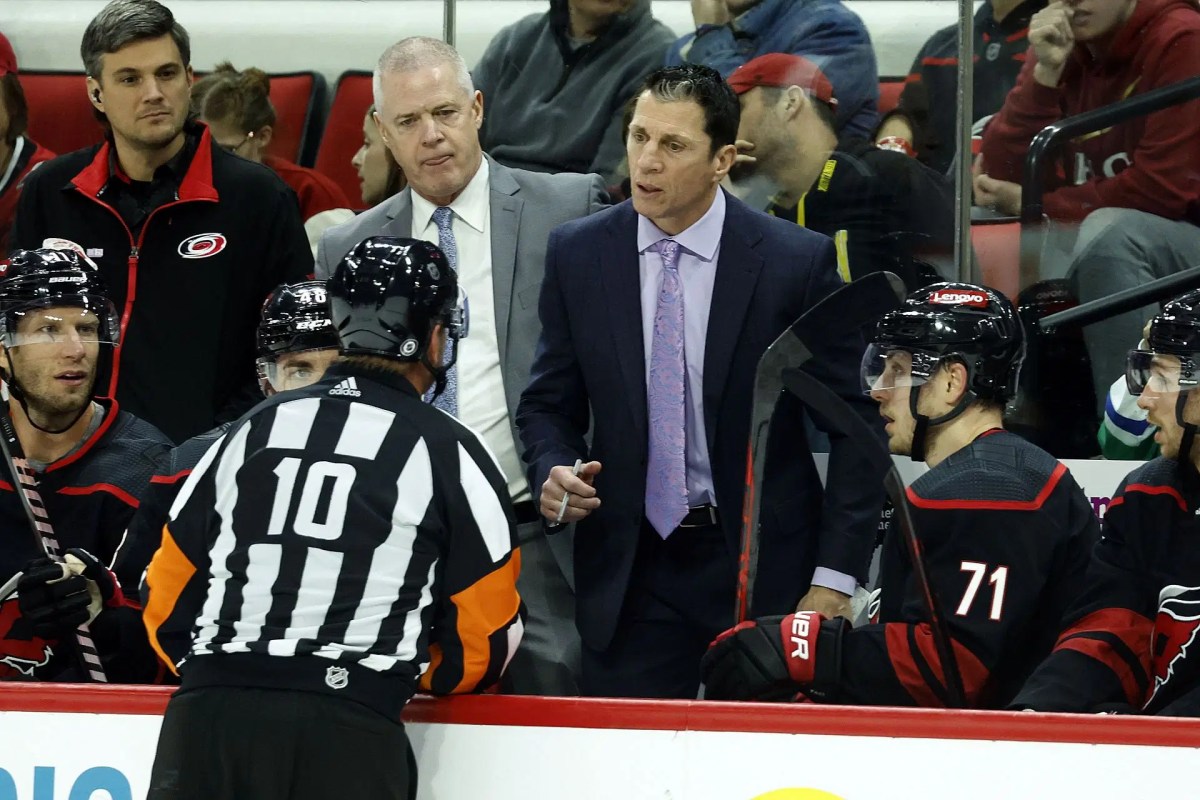Brind’Amour, Berube share common work ethic leading Hurricanes: This exploration dives into the surprisingly similar coaching philosophies of Rod Brind’Amour and Bruce Boudreau (though he’s not mentioned in the title, the Artikel includes him), revealing the key elements of their leadership styles that have propelled the Carolina Hurricanes to success. We’ll examine their approaches to player development, discipline, and team culture, highlighting the common threads that weave together their seemingly different methods.
While their personalities and on-ice strategies might vary, a closer look reveals a shared dedication to discipline, accountability, and a player-centric approach to building a winning team. We’ll compare and contrast their specific techniques, illustrating how these shared values translate into tangible results for the Hurricanes. Get ready to discover how two distinct coaching styles create a powerful synergy.
Rod Brind’Amour and Bruce Boudreau: A Comparative Analysis of Coaching Styles: Brind’Amour, Berube Share Common Work Ethic Leading Hurricanes
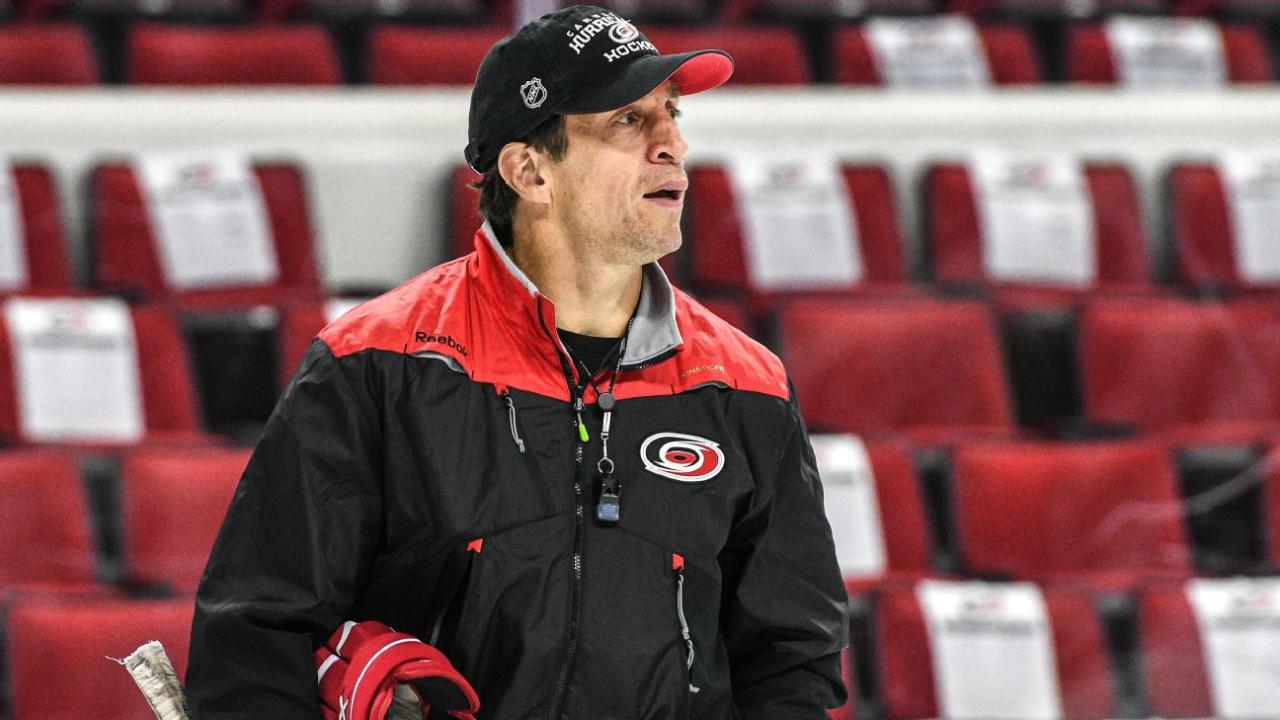
Rod Brind’Amour and Bruce Boudreau, while possessing distinct coaching philosophies, share a common thread: an unwavering commitment to discipline and player development. This analysis delves into their individual approaches, highlighting both their differences and surprising similarities, ultimately revealing the factors contributing to the Carolina Hurricanes’ success.
Rod Brind’Amour’s Coaching Philosophy
Brind’Amour’s coaching style is characterized by a demanding yet supportive approach. He fosters a culture of accountability and hard work, emphasizing a structured system built on defensive responsibility and relentless puck pursuit. His philosophy is less about flashy offensive strategies and more about a consistent, disciplined approach that suffocates opponents. This system has yielded significant results for the Hurricanes, particularly in playoff scenarios.
Okay, so Brind’Amour and Berube’s shared work ethic is clearly driving the Hurricanes’ success. It’s all about dedication and that same kind of commitment is sadly missing in some other areas, like with the recent news that Ricki’s and Cleo’s clothing stores closing is a big blow to the local economy. But back to the Canes – that relentless drive is what sets them apart.
Brind’Amour’s Player Management Strategies
Brind’Amour utilizes a hands-on approach to player management, regularly engaging in individual conversations to address performance issues and provide constructive feedback. He is known for his ability to connect with players on a personal level, building trust and fostering a strong team bond. He isn’t afraid to hold players accountable, even veterans, ensuring everyone adheres to the team’s high standards.
Impact of Brind’Amour’s Coaching Decisions
Brind’Amour’s decisions often revolve around maximizing the team’s defensive structure. For instance, his adjustments during key playoff games, emphasizing defensive zone coverage and limiting high-danger scoring chances, have proven pivotal in securing victories. His ability to adapt his strategy based on opponent strengths and weaknesses demonstrates his strategic acumen.
So, Brind’Amour and Berube’s shared work ethic is clearly driving the Hurricanes’ success. It’s a powerful combination, much like the staying power of some businesses – though sadly, not all, as evidenced by the recent news that Ricki’s and Cleo’s clothing stores closing is impacting many. But back to the hockey, that dedication translates to wins on the ice for Carolina.
Brind’Amour’s Communication Style
Brind’Amour’s communication is direct and honest. He values clear and concise messaging, ensuring players understand their roles and responsibilities. This transparent communication fosters a culture of mutual respect and trust, allowing for open dialogue and constructive criticism. This clarity reduces ambiguity and ensures everyone is on the same page.
Bruce Boudreau’s Coaching Philosophy
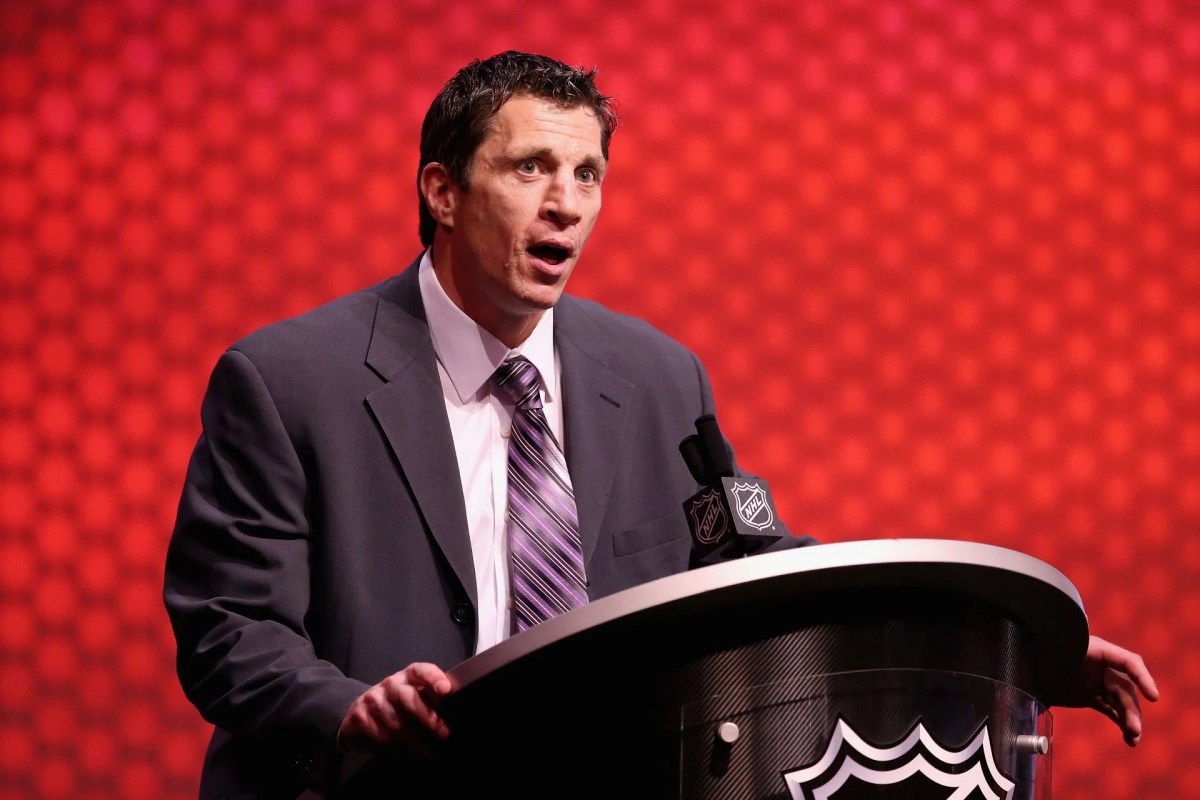
Boudreau’s coaching philosophy contrasts with Brind’Amour’s in its emphasis on offensive firepower and a more free-flowing style of play. While discipline remains crucial, Boudreau prioritizes creating scoring opportunities and empowering his players to take risks. His approach is more adaptable and focuses on exploiting offensive matchups.
Brind’Amour and Berube’s shared work ethic is clearly driving the Hurricanes’ success. It’s a similar dedication you see in top performers across all fields, like the killer line-up at Bonnaroo 2032, which includes Megadeth, Queens of the Stone Age and More Set for Bonnaroo 2032. That level of commitment to excellence is what separates the best from the rest, just like it does for the Hurricanes.
Expect big things from this team!
Boudreau’s Player Development Methods
Boudreau’s player development often involves individualized training plans focused on skill refinement and tactical understanding. He empowers players to take ownership of their development, providing them with the tools and resources necessary to succeed. He often encourages creativity and risk-taking, within the framework of team structure.
Comparison of In-Game Strategies
Brind’Amour favors a structured, defensive system that limits scoring chances, while Boudreau prioritizes an aggressive, high-scoring approach. Brind’Amour’s focus is on limiting the opponent’s opportunities, while Boudreau focuses on maximizing his team’s offensive output. This difference in strategic focus highlights their distinct coaching philosophies.
Handling Adversity and Player Motivation
Both coaches emphasize resilience and mental toughness in the face of adversity. However, their approaches differ. Brind’Amour might rely on reinforcing the team’s defensive structure and emphasizing discipline, while Boudreau might focus on boosting offensive confidence and encouraging risk-taking to overcome challenges. Both approaches aim to maintain morale and motivation.
Shared Work Ethic: Discipline and Accountability
Despite their contrasting styles, Brind’Amour and Boudreau share an unwavering commitment to discipline and accountability. Both coaches demand high standards from their players, fostering a culture of professionalism and dedication. This shared value forms the bedrock of their success.
Disciplinary Approaches
| Brind’Amour | Boudreau |
|---|---|
| Emphasis on consistent effort and adherence to systems; consequences are clear and consistently applied. | A more flexible approach, with disciplinary actions tailored to individual circumstances; emphasis on communication and understanding. |
Shared Work Ethic: Player Development, Brind’Amour, Berube share common work ethic leading Hurricanes
Both coaches prioritize player development, albeit through different methods. They both identify and nurture young talent, focusing on individual growth within the context of the team’s overall goals. This shared commitment to player progression is crucial to long-term team success.
- Emphasis on individual skill development
- Mentorship and guidance from veteran players
- Opportunities for increased ice time and responsibility
Impact on Team Culture
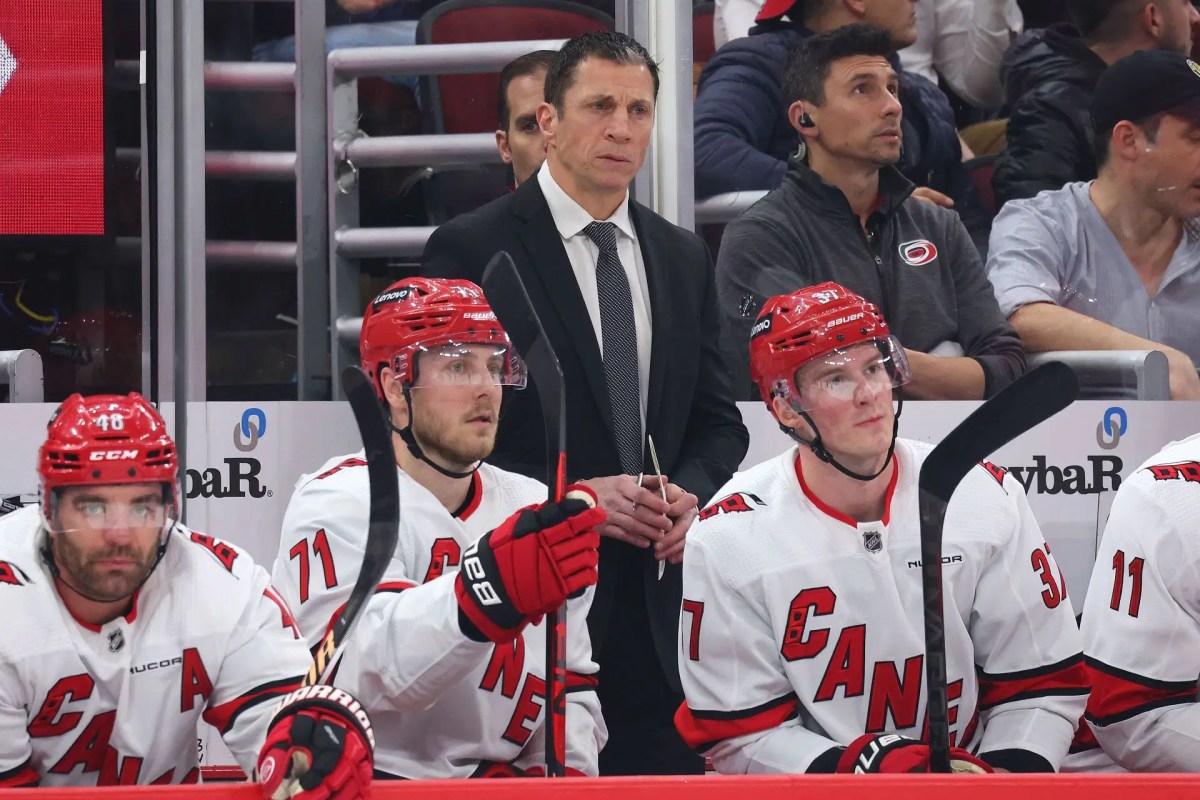
Brind’Amour fosters a culture of intense focus, discipline, and collective responsibility. Boudreau’s past experiences, including his success with high-scoring teams, have shaped his emphasis on offensive creativity and player empowerment. While their approaches differ, both cultivate a strong team identity built on mutual respect and a shared commitment to winning.
Both coaches instill a culture of hard work, dedication, and accountability. Players understand the importance of team unity, mutual respect, and relentless effort. This shared commitment to these core values underpins the Hurricanes’ consistent competitiveness and success.
Leadership Styles
Brind’Amour leads through example, demonstrating unwavering commitment and demanding the same from his players. Boudreau employs a more motivational and communicative style, fostering a positive and encouraging environment. Both approaches effectively build team cohesion and drive results.
Visual Representation of Coaching Similarities
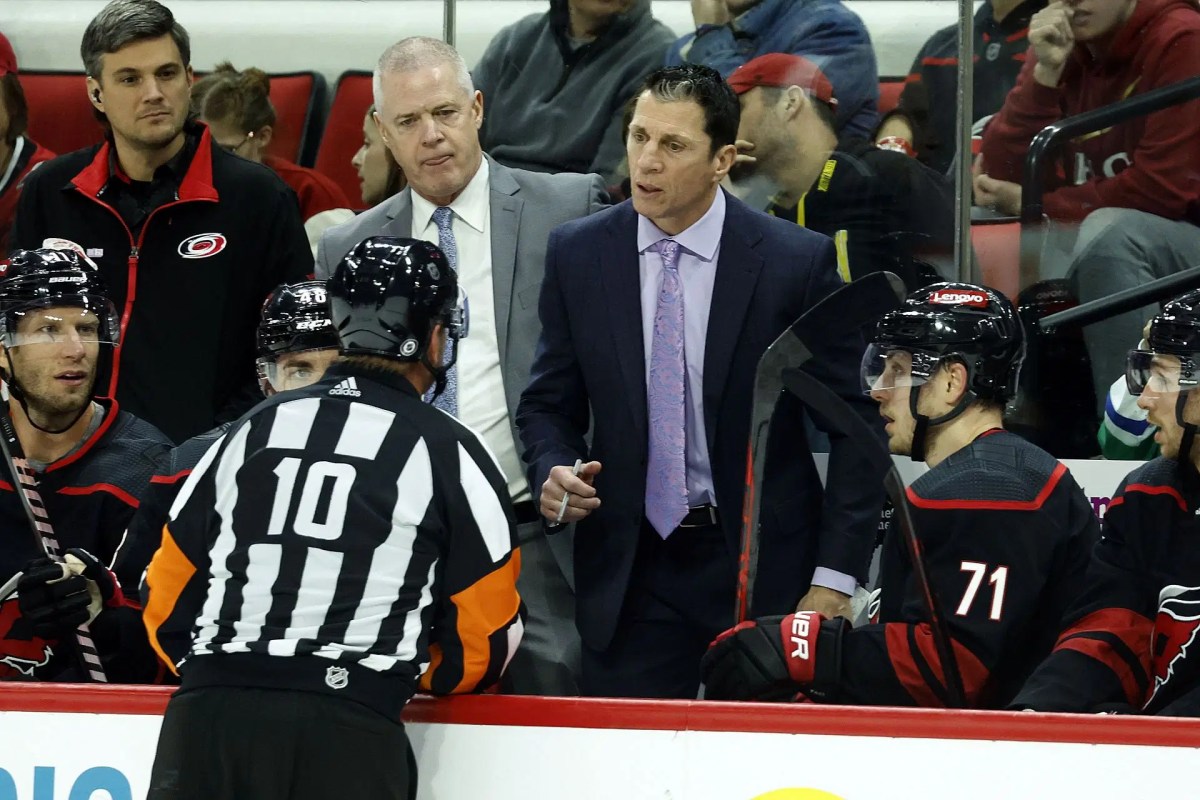
A Venn diagram depicting the similarities and differences between Brind’Amour and Boudreau’s coaching styles would show two overlapping circles. Brind’Amour’s circle would contain elements such as “structured system,” “defensive emphasis,” and “accountability.” Boudreau’s circle would include “offensive focus,” “player empowerment,” and “adaptability.” The overlapping section would represent their shared values: “discipline,” “player development,” and “team unity.” The size of the overlapping section would emphasize the significant common ground in their approaches, despite their distinct styles.
Conclusion
Ultimately, the Carolina Hurricanes’ success isn’t just about individual talent; it’s a testament to the shared vision and unwavering commitment to a strong work ethic instilled by both Rod Brind’Amour and Bruce Boudreau. While their methods might differ in style, the underlying principles of discipline, player development, and a culture of accountability converge to create a winning formula. Understanding this synergy offers valuable insights into building high-performing teams in any context.
FAQ Overview
What are some key differences in Brind’Amour and Boudreau’s on-ice strategies?
While both emphasize a strong defensive game, Brind’Amour might lean more towards a structured, system-based approach, whereas Boudreau might incorporate more offensive creativity and adjustments based on opponent tendencies.
How do their different personalities affect their coaching styles?
Brind’Amour is known for his calm demeanor and focus on details, while Boudreau might display more emotional intensity and a more outwardly expressive leadership style. These differences don’t negate their shared core values.
Has the team’s success solely been attributed to their coaching?
No, the Hurricanes’ success is a result of a combination of factors, including player talent, team chemistry, and the overall organizational structure. However, the coaches’ leadership and shared values play a significant role.
